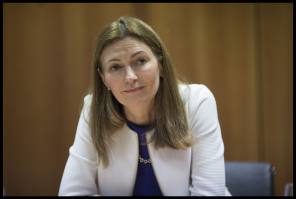

A Fidelity spokesperson confirmed Mr Parkin was leaving Fidelity "of his own accord".
With the birth of his new son, the spokesperson said Mr Parkin had decided he would like to have a few months off with his family and to take some time to think about the next stage of his career.
However, the spokesman for Fidelity confirmed Mr Parkin will continue to focus on retirement policy and proposition.
There will no direct replacement for Mr Parkin at Fidelity but Carolyn Jones, head of pensions product at Fidelity, will take on more external facing duties.
Mr Parkin led Fidelity’s work on assessing the ever-changing landscape for pensions and retirement identifying opportunities to help its customers and develop its products and services.
He joined Fidelity in 2002 as head of DC product development and previously worked as a product developer for UBS Global Asset Management and pension investment consultant with Willis Towers Watson (formerly Towers Perrin).
He is a Fellow of the Pensions Management Institute.
Mr Parkin’s departure comes just one month since questions were asked by investment advisers about how Fidelity's new fee structure will work in practice.
At the start of October Fidelity announced its intention to move all of its funds to a new share class with “variable” fee structure, with a refundable performance fee.
The company said investors who move to this new share class will pay “significantly” lower fees, but because Fidelity will not be absorbing fund research costs, those who remain on the existing share classes will pay more.
The performance fee will only be levied if the funds achieve performance that is superior to that of the benchmark. If performance subsequently dips below the benchmark, the performance fee will be returned to investors.
The company justified its decision not to follow in the footsteps of rivals such as JP Morgan Asset Management and Artemis and absorb research costs by stating that as it has clients both within and outside the regions covered by Mifid regulations, and so if it were to absorb the costs, it would be effectively charging different prices to clients of the same funds.
Fidelity declined to disclose what the performance fee level would be, or indeed what level the fixed portion of the fee will be.
Mr Parkin’s exit is also just the latest of several high profile departures of senior staff at the asset management giant in the last 12 months.
At the start of this year Fidelity’s regulatory specialist Philip Warland left after more than seven years at the company. Mr Warland, who leaves his role as head of public policy, joined the asset manager in 2009.
At Fidelity, Mr Warland was responsible for representing the firm in all regulatory matters, and was heavily involved in dealings with both the FCA and the European parliamentary and regulatory bodies. He managed a team that spanned across London and Brussels.
A year ago Fidelity International's UK head of business development Ed Dymott, who joined the company in 2000, left.
He was a key spokesperson on platform issues and in charge of representing Fidelity with regulators and industry bodies, and bringing new business lines such as retirement into the company.
emma.hughes@ft.com



